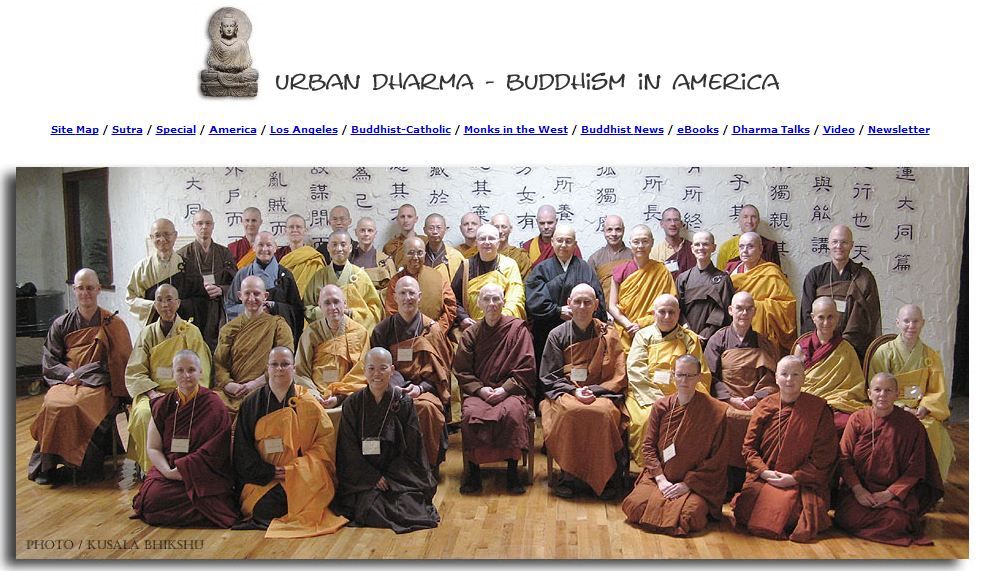Religion
Related: About this forumRise of the non-religious: A Buddhist Perspective?

12th Western Buddhist Monastic Conference – April 2007 – City of the Dharma Realm – Sacramento, California – via UrbanDharma
January 20, 2013
By Justin Whitaker
The Huffington Post has a great discussion posted online late last week on the topic of religion in the US today (click the link for video). And all this week NPR has hosted a discussion of the topic, “losing our religion.”
Lacking, however, was a Buddhist (or Hindu or Jain) voice.
What does the rise of the ‘nones’ mean to American Buddhists?
As American Buddhists are very diverse, ranging from Asian “cradle” Buddhists who may be 2nd, 5th, 9th generation or otherwise to Asian “converts”; European “cradle” Buddhists, generally restricted to 2nd or perhaps 3rd generation Buddhists; European converts, as well as Black, Latino/a and (extremely rare) Native American converts – and others. Beyond the racial or ethnic groupings there are other ways of seeing American Buddhists: the curious, the committed newbies, the orientalists (those who think that since it comes from Asia it must be pure in a way that European traditions no longer are), the scholar-practitioners, the burn-outs, the secularists, and others.
http://www.patheos.com/blogs/americanbuddhist/2013/01/rise-of-the-non-religious-a-buddhist-perspective.html
cbayer
(146,218 posts)well at various times in my life. And during difficult times, I sometimes review them to get a clearer perspective and some peace.
But it never occurred to me to join or convert. So he might be right about the appeal to the nones.
tama
(9,137 posts)and seeking refuge in Sangha (Buddhist "parish"![]() is open to those who feel the need to do so. And the Buddhist teaching many people like me greatly value, is that if Dharma raft has taken you across a river on your path, you can leave it behind instead of carrying extra package.
is open to those who feel the need to do so. And the Buddhist teaching many people like me greatly value, is that if Dharma raft has taken you across a river on your path, you can leave it behind instead of carrying extra package.
I couldn't help noticing that "extremely few" Native Americans become Buddhists. I'm quite certain that is not because of any inherent suspicion or hostility towards Buddhism, but rather the reason has more to do with "owls to Athens"... ![]()
cbayer
(146,218 posts)I also wondered about the Native American reference. Could it be that many have already follow many of the tenets of Buddhism through their own belief systems? Is that what you mean by "owls to Athens"?
but I would not speak of "following tenets" or "belief systems", as native and Buddhist spiritual practices resonate at deeper level than that. The "10 000 paths" that Buddha taught are by no means exclusive of the various native traditions and practices, which may be in some cases and senses even more "effective" (if such term can be meaningfull in this context) than Buddhist tradition. If there is difference, Buddhism is more oriented to offer help to "seekers" whereas at least some native traditions and ways of life have succeeded relatively well at "feeling at home".
skepticscott
(13,029 posts)that those "tenets" you cherish are discoverable by any rational and reasonable human being, and do not require the input or assistance of a particular religion, or any religion at all.